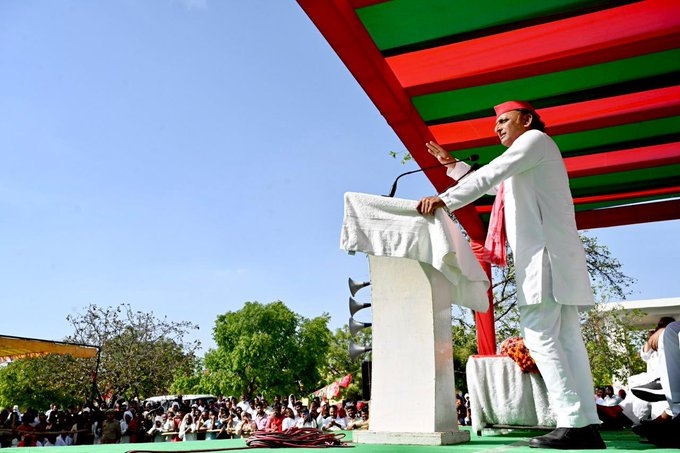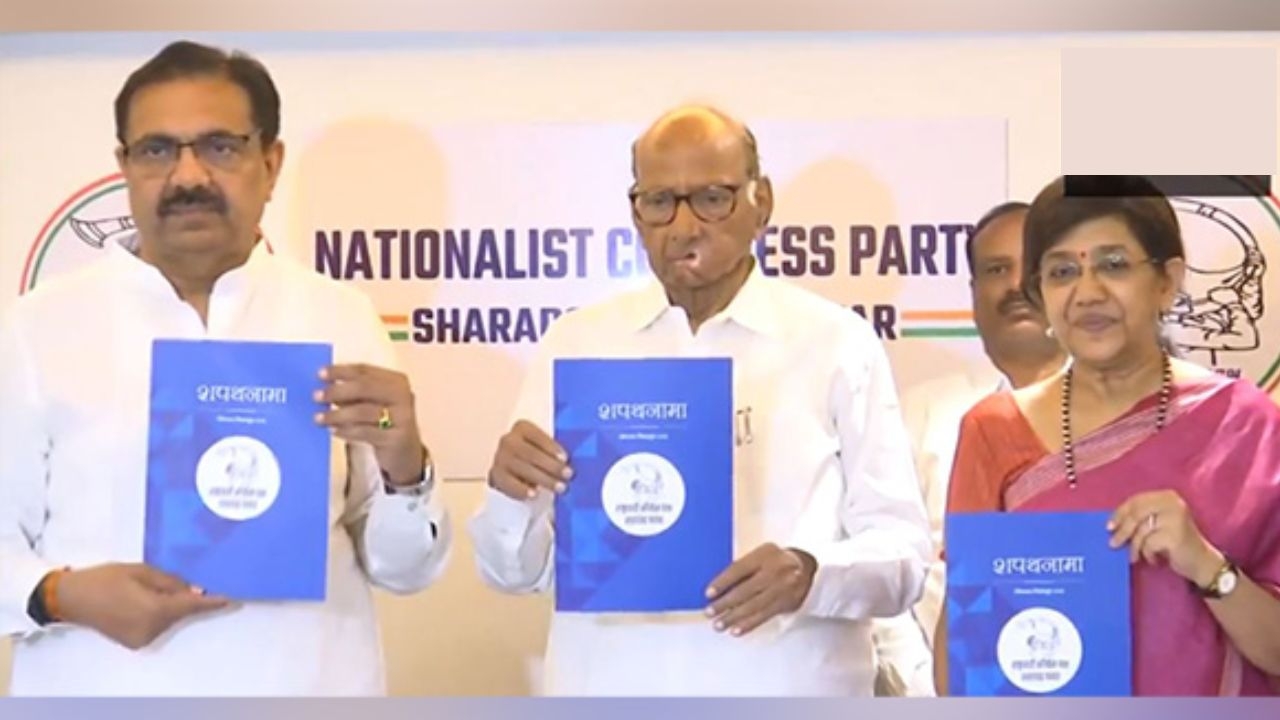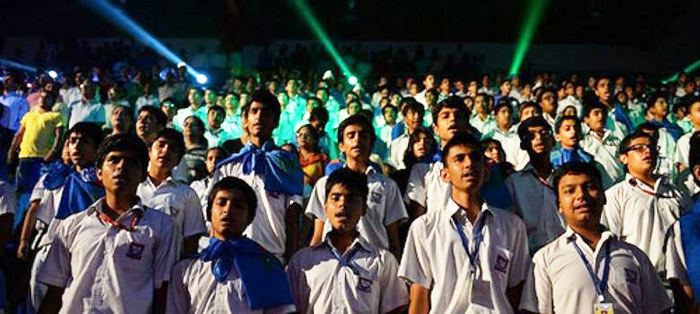
A video of a family being made to leave a movie theatre in Mumbai for remaining seated during the National Anthem has been making the rounds on social media since 29 November.
The video shows an agitated crowd shouting at the family of five. They're told things like, "how can he say he will not stand?" and "It's the National Anthem. He has to f**king stand!" As the man who was sitting tries to explain something, the audio is inaudible but he's shouted down with retorts of "You are standing just fine now!" and "You're going to sit in the theatre for four hours, why can't you stand for a few seconds?"
The family is finally bullied into leaving the theatre and people break into cheering and applause as they exit.
Also read: Family thrown out of theatre for failing to stand during national anthem
As the intolerance debate continues in the Parliament, this particular incident raises important questions. Was the family lawfully entitled to penalty? Or is this a case of patriotism gone too far?
Before pointing fingers, let us see what the law states.
Being seated = disruption?
The primary point of reference is The Prevention of Insults to National Honour Act, 1971. The original Act can be accessed from the website of Ministry of Home Affairs. This is what the Act says about the National Anthem:
"Whoever intentionally prevents the singing of the Indian National Anthem or causes disturbances to any assembly engaged in such singing shall be punished with imprisonment for a term, which may extend to three years, or with fine, or with both."
However, nowhere does it mandate a 'proper' physical conduct.
Another document on the website titled "Orders relating to the national anthem of India" speaks about the conditions when the national anthem must be sung or played. An excerpt from the first point of Part V reads:
"Whenever the Anthem is sung or played, the audience shall stand to attention."
However, it subscribes no penalty to someone who does not, in fact, stand.
Legally therefore, the family is not liable to a penalty because their actions do not translate to disruption.
Previous controversies
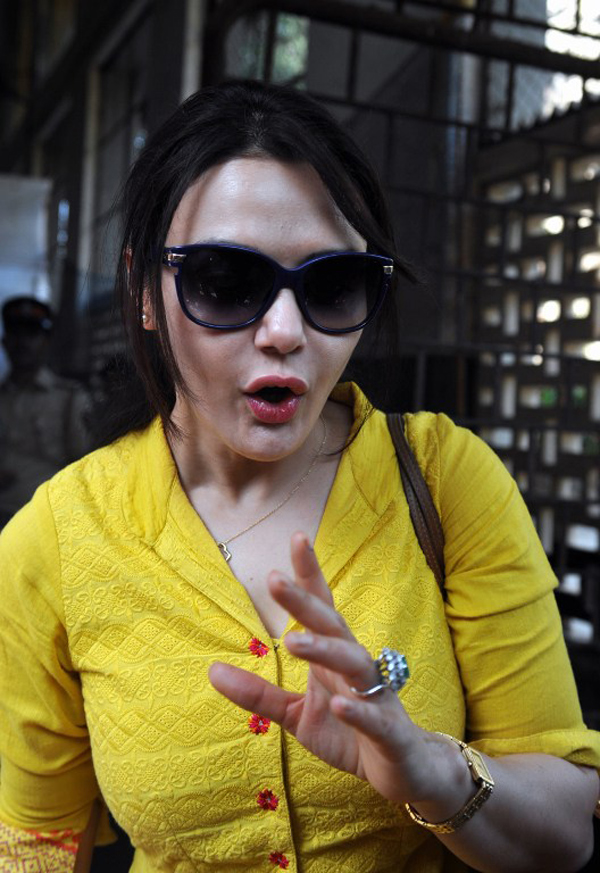
Photo: AFP PHOTO/STR / AFP / STRDEL
This is not the first time that conduct towards the National Anthem has sparked a controversy.
In September 2014, a 25-year-old student from Kerala, M Salman, was slapped with sedition charges when he refused to stand for the national anthem at a local theatre. The student, who was reportedly "hooting" during the anthem, was also charged under article 66A of the IT Act for posting derogatory comments about the Indian flag on the social media on Independence Day. He was granted bail a month later after surrendering his passport and paying a hefty fine.
Actress Preity Zinta found herself in a similar position a few years ago. During the premiere of the film Bang Bang, a man allegedly remained seated during the national anthem. Fellow movie goers got agitated and insisted that he leave, a demand that Preity supported.
Patriotism or hypernationalism?
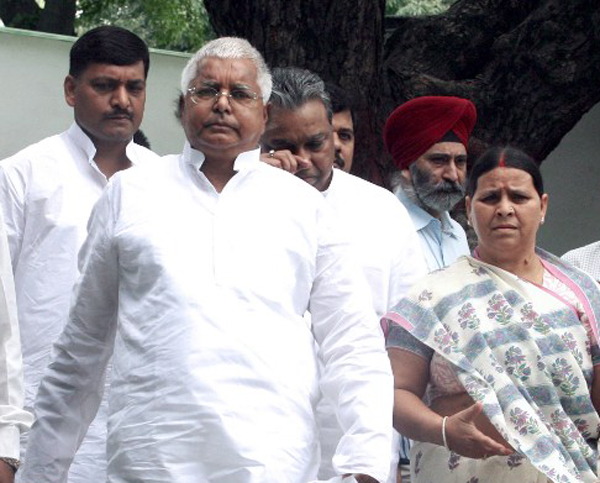
Photo: AFP PHOTO/RAVEENDRAN / AFP / RAVEENDRAN
While patriotism or love for one's country should ideally be a naturally occurring sentiment, this is often carefully cultivated right from childhood - with singing the national anthem every morning, essays on the white revolution, abridged versions of the Mahabharata and Ramayana as course books etc.
But how much is too much?
While the law often leaves room for interpretation, in 2005, a petition was filed against Rabri Devi and Lalu Prasad for remaining seated as a version of the National Anthem played at a function. A local court then ruled that while it was a "moral duty" of a person to stand, sitting was not a crime prima facie under the 1971 Act.
In this context, what does the Mumbai incident mean for a country that is tangled up in the intolerance debate? Was it a righteous move by the patriotic audience? Or was it an impingement of the personal liberty of individuals? You decide.


_251372_300x172.jpg)


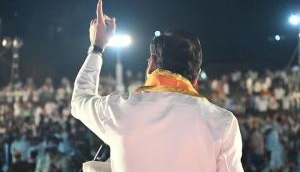
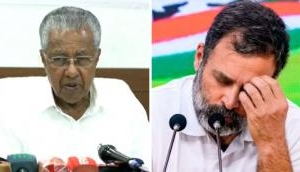
![BJP's Kapil Mishra recreates Shankar Mahadevan’s ‘Breathless’ song to highlight Delhi pollution [WATCH] BJP's Kapil Mishra recreates Shankar Mahadevan’s ‘Breathless’ song to highlight Delhi pollution [WATCH]](http://images.catchnews.com/upload/2022/11/03/kapil-mishra_240884_300x172.png)

![Anupam Kher shares pictures of his toned body on 67th birthday [MUST SEE] Anupam Kher shares pictures of his toned body on 67th birthday [MUST SEE]](http://images.catchnews.com/upload/2022/03/07/Anupam_kher_231145_300x172.jpg)


